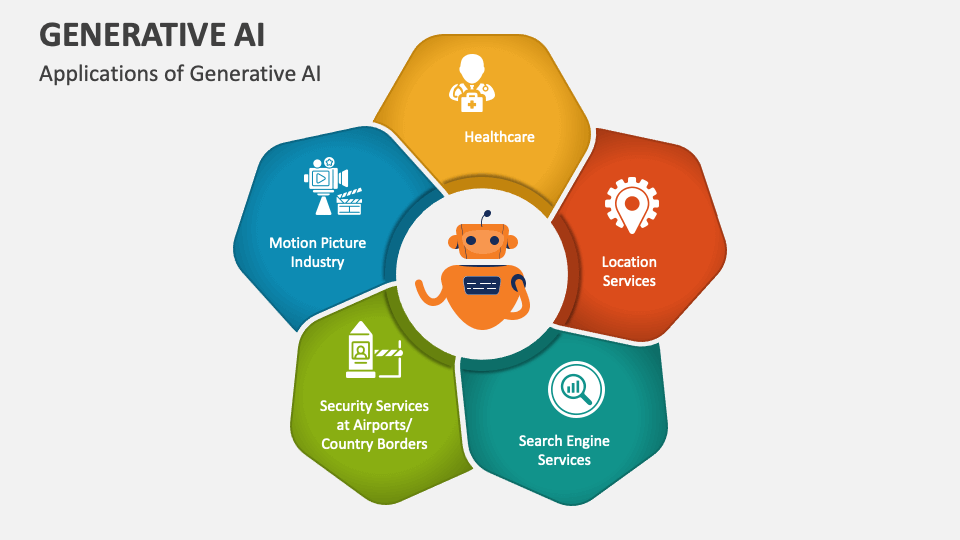Ahmedabad
(Head Office)Address : 506, 3rd EYE THREE (III), Opp. Induben Khakhrawala, Girish Cold Drink Cross Road, CG Road, Navrangpura, Ahmedabad, 380009.
Mobile : 8469231587 / 9586028957
Telephone : 079-40098991
E-mail: dics.upsc@gmail.com

Generative AI
News: Recently, The Central government issued an advisory to all intermediaries and generative AI platforms using artificial intelligence (AI) models, software or algorithms.
Background:
• The Ministry of Electronics and Information Technology (MeitY) issues an advisory mandating explicit government permission for the deployment of AI models, large-language models (LLMs), and generative AI on the Indian internet.
• It is aimed at preventing bias, discrimination, and safeguarding electoral integrity, the advisory instructs platforms to ensure responsible use of algorithms.
• The advisory follows recent concerns, after a user claimed bias in Google’s AI model Gemini, accusing it of being “malicious” in responses related to political figures.
• Google responds by acknowledging the issues, pledging to address them, and temporarily halting Gemini’s image generation.
What is Generative AI?
• Generative AI is a branch of artificial intelligence that can create new content, such as text, images, videos, or audio, using generative models. Generative models are trained on large amounts of data and learn to mimic the patterns and structure of the data.
What are the advantages of Generative AI?
• It can augment human creativity and productivity by providing new ideas or suggestions for various tasks, such as writing, art, design, music, software development, and more.
• It can speed up product development and innovation by generating new prototypes, designs, or solutions for different domains, such as healthcare, education, finance, entertainment, and more.
• It can enhance customer experience and engagement by generating personalized and relevant content, such as recommendations, advertisements, chatbots, or games.
• It has the potential to revolutionize the healthcare sector by improving the accuracy of diagnosis. For example, Conversion of X-ray or any CT scan images to real images can improve the accuracy of diagnosis.
• It can improve the quality and diversity of the content generated by reducing errors, biases, or repetitions.
• Generative AI is also used for many special-purpose chatbot tasks. For example, Government chatbots to help citizens get access to the right information on various schemes and policies.
What are challenges of Generative AI?
• Bias - Generative AI relies on large amounts of data to train its models, but the data may contain biases or inaccuracies that can affect the quality and fairness of the generated outputs. For example, a generative model trained on text data that is skewed towards a certain gender, race, or ideology may produce biased or discriminatory content that reflects the same bias.
• Control - Generative models can produce outputs that are difficult to control or fine-tune to specific requirements. For example, a generative model may create fake or misleading images, videos, or audio that can be used for malicious purposes, such as spreading misinformation, impersonating someone, or violating privacy.
• Quality - Generative AI can produce realistic and coherent content, but it may also generate outputs that are low quality, inconsistent, or irrelevant.
• Political - Generative AI can be used to create fake or misleading content that can influence public opinion, manipulate elections, or spread propaganda. For example, generative AI can create deepfakes. Deepfakes can be used to impersonate politicians, celebrities, or other influential figures and make them say or do things that they never did.
• Social - Generative AI can also affect the social and cultural aspects of human society, such as identity, expression, communication, and ethics. For example, generative AI can create content that reflects or reinforces the biases or stereotypes that exist in the data it is trained on. This can result in discrimination, exclusion, or harm to certain groups or individuals.
• Job loss – Increased fear of job losses as the technology can appear to be more cost-efficient and productive to firms. For example, customer care service jobs face threat due to AI Chat boxes.

Address : 506, 3rd EYE THREE (III), Opp. Induben Khakhrawala, Girish Cold Drink Cross Road, CG Road, Navrangpura, Ahmedabad, 380009.
Mobile : 8469231587 / 9586028957
Telephone : 079-40098991
E-mail: dics.upsc@gmail.com
Address: A-306, The Landmark, Urjanagar-1, Opp. Spicy Street, Kudasan – Por Road, Kudasan, Gandhinagar – 382421
Mobile : 9723832444 / 9723932444
E-mail: dics.gnagar@gmail.com
Address: 2nd Floor, 9 Shivali Society, L&T Circle, opp. Ratri Bazar, Karelibaugh, Vadodara, 390018
Mobile : 9725692037 / 9725692054
E-mail: dics.vadodara@gmail.com
Address: 403, Raj Victoria, Opp. Pal Walkway, Near Galaxy Circle, Pal, Surat-394510
Mobile : 8401031583 / 8401031587
E-mail: dics.surat@gmail.com
Address: 303,305 K 158 Complex Above Magson, Sindhubhavan Road Ahmedabad-380059
Mobile : 9974751177 / 8469231587
E-mail: dicssbr@gmail.com
Address: 57/17, 2nd Floor, Old Rajinder Nagar Market, Bada Bazaar Marg, Delhi-60
Mobile : 9104830862 / 9104830865
E-mail: dics.newdelhi@gmail.com